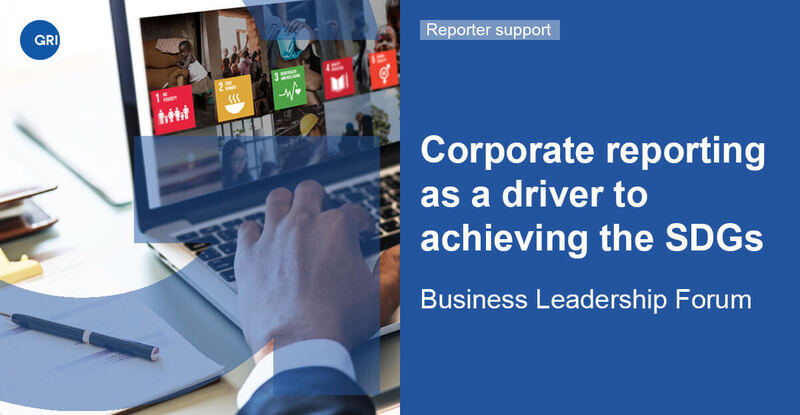
Key achievements of Egypt’s SAIL project in serving SDGs over 9 years
A total of 157,000 beneficiaries – representing over 38,000 households – got a boon of ...

The Global Reporting Initiative (GRI) launched a Business Leadership Forum, which commenced in March, on corporate reporting as a driver for achieving the Sustainable Development Goals (SDGs).
The initiative offers participating companies practical insights, focusing on how to raise the quality and strategic relevance of their SDG reporting.
The Forum is built around a series of online sessions that will bring together corporate reporters and representatives from key stakeholder groups — including the investment community, governments, regulators, members of the supply chain, civil society and academia.
The experiences of the past four years have shown that both businesses and stakeholders benefit from strategic and relevant SDG-related information. Sustainability reporting is an essential driver of the transformational change that is required to achieve the SDGs. As the world looks ahead to the Decade of Action and the pandemic recovery phase, the case for meaningful corporate reporting on the SDGs is more compelling than ever before.
Identifying SDG priorities throughout the value chain is a complex undertaking, as is demonstrating the cause-and-effect relationship between SDG contributions and business performance. Moreover, because of the interconnected and interdependent nature of the SDGs, companies need to identify and take account of synergies and trade-offs between positive and negative impacts.
Efforts to quantify impacts on the SDGs and contextualize them (for example, considering the social thresholds and planetary boundaries) needs strengthened.
That is why it is necessary to move beyond assessing activities and outputs, and focus on how to disclose outcomes and impacts.
This is crucial as it enables businesses to manage their performance and demonstrate accountability for their impacts.
There is increasing interest from a wide range of stakeholders in business contribution to the SDGs, including how companies are aligning products, services and business strategy with the SDGs. Policy makers, investors, consumers, labor organizations and civil society all increasingly demand that companies show transparency through providing quality data and balanced reporting.
However, different stakeholders have different expectations and data requests. Steps business can take to provide more strategic and relevant information include providing aggregated or disaggregated information that allows stakeholders to assess their performance and contribution to the SDGs; setting long-term SDG-related performance targets, and regularly reporting on progress; and clearly demonstrating how the business strategy aligns with the SDGs.
Proactive communications on the issues that matter most — to both the company and stakeholders — is crucial.
A total of 157,000 beneficiaries – representing over 38,000 households – got a boon of ...
The United Kingdom and Australia have contributes about $ 22 million to support the efforts ...
Thirty-seven Member States of the United Nations Industrial Development Organization (UNIDO) will benefit from the ...


اترك تعليقا